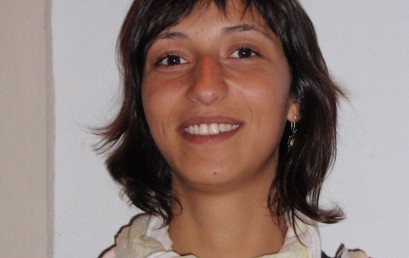Departmental Seminar – Laetitia Renier
The role of meta-accuracy in recruitment Laetitia A. Renier1, Emmanuelle P. Kleinlogel2, Claudia Toma11, Marianne Schmid Mast2, Nora A. Murphy3 Previous research showed that people may or not know the impression they convey to others (i.e., meta-accuracy). However, little research has addressed to what extent meta-accuracy may be related to social outcomes such as […]
Departmental Seminar – Zacharia Bady
Uncovering social cleavages after a civil war: A methodological proposal for the assessment of social identities in surveys Recent social psychological research contributed three important insights about the way social identity may play a part in intergroup conflict and hence about how we should study its role: (1) there is always a multitude of intersecting […]
Departmental Seminar – Theofilos Gkinopoulos
Commemorating history: Constructions of group identities and relations in ceremonial political discourse across time This study analyses the discourse of political speeches of the leaders of two Greek political parties commemorating the restoration of Greek democracy on 24th July 1974; a mainstream party, New Democracy, and an opposition party, the Coalition of the Radical Left. […]
Departmental Seminar – Nafees Hamid
From the social networks to the sacred values of terrorist groups: A social network and fMRI analysis of European jihadists Terrorist networks are complex systems, much like ecosystems, which evolve based on changes at the sub-structural level. Changes in financing, battlefields, resources, policing, etc. create new opportunities and difficulties for terror networks which must adapt […]
Departmental Seminar – Elisa Sarda
Les effets des jeux vidéo sexistes sur l’objectivation des femmes Dans notre société les femmes sont souvent réduites à leur apparence physique (i.e. elles sont objectivées) et sont la cible de différentes conduites sexistes. Le sexisme et l’objectivation des femmes sont fortement véhiculés par les médias et plus particulièrement par les jeux vidéo. De nombreux travaux […]
Departmental Seminar – Katrien Fransen
Leading from within: Athlete leaders’ capacity to enhance confidence and performance by strengthening players’ team identification Leadership is a fundamental aspect of sports performance, particularly within team sport environments. Over the past 25 years, there has been significant research exploring the role of the coach/manager in this regard. However, this only represents one aspect […]
Departmental Seminar – Ana Figueiredo
MAPUMEDIA: Representations of the Mapuche in four Chilean newspapers (2010-2015) The mass media are a pervasive source of information, influence and sense making in present day societies. More specifically, nationally available newspapers can be seen as a source of information that influences public opinion and shapes representations of social issues among both majority and minority […]
Departmental Seminar – Celia Blanchet
Effets de l’identité sociale sur la mémoire transactive et les performances collectives De plus en plus d’organisations s’appuient sur le travail en équipe et font face au défi suivant : encourager le travail collaboratif en favorisant le partage et la reconnaissance des expertises entre les membres d’un groupe. En effet, l’efficacité d’une équipe passe par le […]







